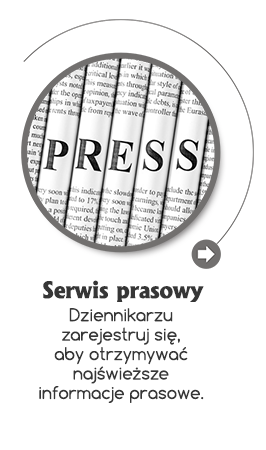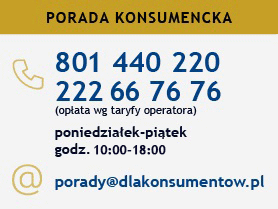Tu jesteś: Strona główna > Urząd > Informacje ogólne > Aktualności
Does German equal good? Results of UOKiK's tests.
< poprzedni | następny > 09.10.2018

- UOKiK has compared, for the first time, the quality of products offered to consumers from Poland and Western Europe.
- We verified the quality of 101 products. Significant differences were identified in 12 of them.
- German chips, for instance, were fried using sunflower oil, while their Polish counterparts - palm oil.
Polish consumers do not have any firm views about dual quality of food products. 71 per cent of respondents taking part in a survey conducted to the order of UOKiK by Kantar Public* admitted that they had never bought a product of the same brand in Poland and abroad. 86 per cent have not heard about the term of “dual quality of food”, or are not familiar with its meaning. Only 3 per cent of consumers know what it describes. Despite all that, one in three respondents believe that the quality of food differs. Their knowledge is based primarily on their own experience, opinions of others and media reports. The majority are convinced that if specific products look the same, their ingredients must be the same as well. Those who have spent a considerable amount of time living abroad are convinced the most that the quality of goods sold in Poland differs from that of their European counterparts.
“Consumers within the European Union should be treated equally. Producers must not disregard the expectations of consumers and explain each difference by their willingness to satisfy different tastes of customers. Nearly half of Poles we have surveyed claim they are willing to pay more for a higher quality product. The share of those expressing such a conviction increases along with their growing income. This means that a considerable shift in their attitude has taken place, as a few years ago, price was the main factor they were taking into consideration,” says Marek Niechciał, President of the Office of Competition and Consumer Protection.
Shopping and testing
The products have been tested in two ways. We have relied on the assistance of the Trade Inspection Authority and our accredited laboratories. First batch of comparison tests: at the end of 2017 we purchased some food products in Poland, and their counterparts in Germany. Second batch of comparison tests: in Q2 2018 we purchased, in Poland food products with labels in: Polish (meaning that they were manufactured for our market) and in a foreign language (meaning that they were intended to be sold on other Western European markets). In total we verified the quality of 101 product pairs. Significant differences were identified in 12 of them. We have noticed, for instance, that Haribo gummies produced for the Polish market are more frequently of apple or lemon flavour, while those manufactured for the German market - of strawberry and pineapple flavour. Nescafe Classic coffee drunk by our western neighbours is stronger. The results of comparisons are presented in the attachment this press release. The sample has not been large enough, however, to relate the results to the entire market.
First batch of comparison tests
The Office of Competition and Consumer Protection compared the quality of food products offered in Poland and in Germany for the first time at the end of 2017. We purchased 37 pairs of food products in Polish and German store chains: Aldi, Kaufland, Lidl, Makro, Netto and Rossmann. These included: cottage cheese, chips, soft drinks, juices, yoghurt, tee, coffee, frozen pizza, ketchup, chocolate, biscuits, gummies, cocoa smear cream, frozen fish, cold meats and sausage. A considerable quality difference has been identified in the case of 4 of them. The details are provided below.
- Crunchips pepper chips – although the packaging was identical, the ones sold in Polish shops contain 25 g less chips. Polish chips - fried in palm oil, contained monosodium glutamate, had a higher fat content. German chips - fried in sunflower oil, without flavour enhancers. The producer added tomato and cheese powder - the Polish chips lacked such an addition.
- Almette cheese with herbs – both packages contained the same piece of information: “100% natural ingredients”. The German cheese was made of curd, herbs, onion, garlic and salt. Its Polish counterpart contained: curd, skimmed milk powder, onion, salt, garlic, acidity regulator (citric acid), herbs (0.1 per cent), natural aromas. The acidity regulator, being an artificial substance, was in contradiction with the information on the packaging, stating that Almette cheese was made of “100% natural ingredients”.
- Milka chocolate with peanuts – the one sold in Polish shops contained fewer peanuts than the one available on the German market.
- Lipton Ice Tea Peach – the one produced for the Polish market contained less tea extract. But it contained sugar, fructose and sweetener. On the German market - sugar was the only ingredient added by the producer.
Second batch of comparison tests
The second batch of tests involving food products was conducted in Q2 2018. This time we purchased product pairs mainly in Polish shops, and 10 of in Germany. We have chosen the ones with labels in Polish and in a foreign language. We intended to compare whether quality differences are present in food products manufactured for Polish consumers and for those from Western Europe. In total we verified 64 food product pairs, and considerable differences were identified in 8 of them. In 2 cases, products for the Polish market were superior. The results are presented below.
- Milka Oreo chocolate – the one produced for Polish consumers was of better quality and was tastier, as proved during laboratory tests. It contained lower quantities of coca fat replacements.
- Capri Sun Orange soft drink contained more orange juice (20 per cent) than its Western European counterpart (7 per cent).
- FuzeTea soft drink - in Poland – lower preach juice content and a clearly different taste.
- Leibniz Minis Choco biscuits – the packaging sold in Poland was slightly larger, but contained 25 g less product.
- Monster Munch Original crisps – the producer added monosodium glutamate (flavor enhancer), which provided an intense, cheese-like flavour. The packaging sold in Poland contained 25 g less product.
- Curly Peanut Classic crisps – the same packaging contained 30 g less crisps in Poland.
- Knorr Fix Spaghetti Bolognese – more fat and sugars in the product sold in Poland, less salt in the Western European version. Differences in taste and smell - products sold on the Polish market were dominated by the taste of pepper, the Western European variety - by that of garlic.
- Philadelphia cheese with herbs – differences have been identified. The product sold on the Polish market was made of milk, cream and milk proteins, while its Western European counterpart - of curd. The Polish packaging weighed 125 g, while the Western European one - 175 g.
What’s next
The results we have come up with will be submitted to the European Commission which commences its own product comparison tests. The effects of UOKIK’s study will be included there as well. The EU is also working on a package of changes that will be formulated in the Omnibus directive. “We are very much in favour of regulations that prevent the discrimination of consumers and ensure access to good quality products throughout the entire European Union. The new regulations must be, first of all, clear for the market and for its participants,” explains Dorota Karczewska, Vice President, UOKiK. “The definition of “identical” products will be of key importance for identifying violations. Will identical products have to be labelled in the same manner, or maybe they will have to weigh the same as well? Without a reference product being clearly identified, it will be difficult for the inspectors to conduct a reliable assessment, and it will be also difficult for the consumers to make the right choice,” adds Dorota Karczewska, Vice President of UOKiK. More information on this particular topic will be provided on
18 October during a debate held at Centrum Nauki Kopernik in Warsaw. Please be invited to attend the event.
Consumer support:
Phone: +48 801 440 220 or +48 22 290 89 16 – consumer helpline
Email: porady@dlakonsumentow.pl
Branches of the Consumer Federation
Consumer ombudsmen – in your town or district
Contact for the media:
UOKiK Press Office
pl. Powstańców Warszawy 1, 00-950 Warsaw
Phone: +48 695 902 088
E-mail: biuroprasowe@uokik.gov.pl
Twitter: @UOKiKgovPL
*Survey: “Opinions and experience of Polish consumers related to the phenomenon of dual quality of products”. Kantar Public, to the order of UOKiK. Survey dates: November-December 2017. Methodology applied: computer-aided direct interviews (nationwide sample of 1,049 respondents aged 15 or over). Computer-aided telephone interviews (sample of 500 Poles who spent at least 2 months abroad (without interruptions) over the past 5 years).
Pliki do pobrania
- Press release (2,11 MB, doc, 2018.10.09)
- Presentation: First batch of comparison tests - 2017 (1,3 MB, pdf, 2018.11.15)
- Presentation: Second batch of comparison tests - 2018 (1,13 MB, pdf, 2018.11.15)
Warto przeczytać
Po interwencji Prezesa UOKiK, PZPN i Ekstraklasa SA zmieniły swoje praktyki, które mogły stanowić nadużywanie pozycji dominującej. ...>
Prezes UOKiK Tomasz Chróstny wydał dwie decyzje w sprawie AUTOCENTRUM AAA AUTO – łączna kara to ponad 72 mln zł. ...>
Po interwencji UOKiK poprawi się sytuacja producentów trzody chlewnej w systemie tuczu kontraktowego. ...>
Prezes UOKiK Tomasz Chróstny nałożył kary w łącznej kwocie prawie 8 mln zł na spółki Volkswagen Poznań i Solaris Bus & Coach za tworzenie zatorów płatniczych. ...>
Prezes UOKiK nałożył ponad 46 mln zł kary na CANAL+ Polska oraz nakazał zwrot środków konsumentom. ...>
Prezentowane na stronie wakacje.pl ceny wielu wycieczek były nieaktualne lub niepełne – inna cena pokazywała się w wyszukiwarce, a inna po rozwinięciu szczegółów oferty. ...>
Wyszukiwarka
Konsumencie, masz problem?
-
Kontakt
Urząd Ochrony Konkurencji i Konsumentów
pl. Powstańców Warszawy 1
00-950 Warszawa
tel. 22 55 60 800
uokik@uokik.gov.pl
Elektroniczna skrzynka podawcza ePUAP -
Porady dla konsumentów
- Infolinia Konsumencka, tel. 801 440 220 oraz 222 66 76 76 czynna od poniedziałku do piątku w godz. 10:00 - 18:00, opłata wg taryfy operatora.
- porady@dlakonsumentow.pl
- Rzecznicy konsumentów
- Europejskie Centrum Konsumenckie





















